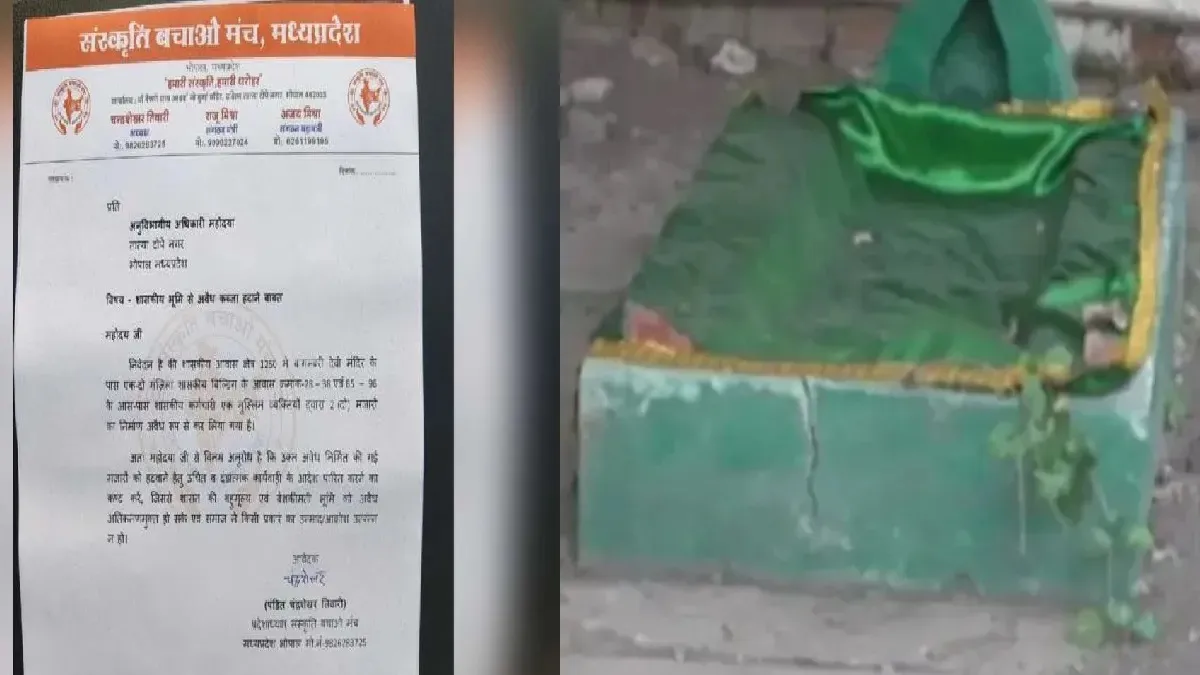A controversy has erupted in Madhya Pradesh over what Hindu organisations are calling a case of "land jihad" after a mazar (Muslim shrine or mausoleum) has allegedly been found in a government residential building in Bhopal. The dispute centres around two mosques built within the premises of a government house located in one of the city’s most high-profile VVIP areas. It has raised eyebrows after it was discovered that they were built inside the courtyard of a government-allocated residence in the 1,250 Quarters area. This locality is known for housing senior government officials, from Class I officers to clerks.
Local residents and Hindu organisations claim that the two mazars have existed for years. One resident revealed that the house in question was previously allotted to a Muslim government employee. Now, the presence of the mazars has led to anger and suspicion among Hindu groups, who allege that they were "built illegally under the cover of government silence."
According to one of the complainants, the structures resemble graves and are believed to have been constructed by the previous occupants of the house. Hindu groups have lodged a formal complaint with the administration, demanding an inquiry into how religious structures came up on government land.

Is this a case of land jihad?
The issue has raised several questions: If these are indeed old shrines, why were government buildings constructed around them? If not, how did they come up without resistance or objection from authorities? Was there any approval, or did these structures quietly take form under administrative neglect?
State govt promises strict action
Reacting to the issue, Madhya Pradesh minister Kailash Sarang spoke exclusively to India TV, asserting that if this is indeed a case of land jihad, it will be taken very seriously. “We have taken action against land jihad in the past and will not tolerate it at any level,” the minister stated. He confirmed that an SDM-level investigation is already underway and that verifying facts in a government colony would not be difficult. “If a mazar exists within the house, it clearly indicates it was built later. This is extremely objectionable. No one can create a shrine by burying someone in such an area. That simply hasn’t happened in the last 50 or 100 years,” he said.
Sarang emphasised that any illegal occupation of government land for religious purposes, irrespective of who does it, will face legal consequences. “This matter is under investigation, and if proven, it will be treated as a serious offence,” he added.
